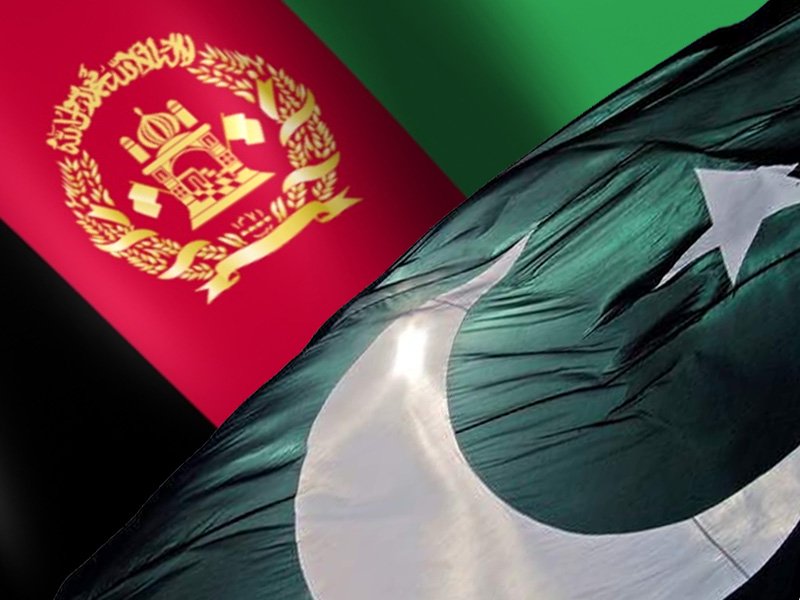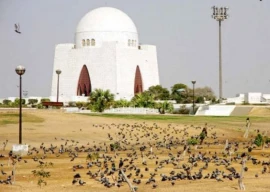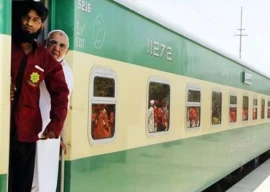
Pakistan’s decision to release Afghan Taliban prisoners late last year was received as a major policy shift on Islamabad’s part in helping jumpstart a nascent peace process in neighbouring Afghanistan. It was often repeated that Pakistan would have to play a vital role in brokering a peace deal between the Afghan Taliban and the Karzai administration.
Such expectations stemmed from the fact that Pakistan’s security establishment has had historic ties with the Taliban. Kabul continues to believe that the Taliban will come to the negotiating table only if Pakistan wants them to. Such a perception exists despite Islamabad’s insistence that it supports an “Afghan-led and Afghan-owned” reconciliation process.
Yet, the presence of some of the high-profile Afghan Taliban figures in Pakistan, as evident from the recent prisoner releases, affirms that Islamabad will have a major, if not lead, role in bringing about peace in its war-ravaged neighbouring nation.

Since November last year, Pakistan has released at least 26 Taliban detainees, including senior figures like former Helmand governor Abdul Bari, former justice minister Nuruddin Turabi and former Kabul governor Mullah Daud Jan. Islamabad intends to release more Taliban detainees in the future as well.
Let us examine what really prompted this “policy shift”.
The obvious official answer would be that the Taliban prisoners were freed at the request of the Afghan High Peace Council, which is mandated to hold direct talks with the insurgents.
Pakistan has been under considerable pressure from key international players, including the US, to do more to stabilise the situation in Afghanistan.
Islamabad was reluctant to take any tangible steps for the simple reason that the US had no clear roadmap for the Afghan endgame. It adopted a policy of “wait and see” since all stakeholders in Afghanistan had kept their cards close to their chests.
With the release of Afghan Taliban detainees, however, Kabul and Washington have been put on the defensive. Pakistani authorities insist that the onus is now on both these capitals for creating an environment for broad based all- inclusive talks on the future of Afghanistan. The success of Pakistan’s move also hinges on whether the US opts for releasing Taliban detainees being held at Guantanamo Bay.
Islamabad appears to be not only concerned with the success of the peace process but mending its strained relationship with the Taliban. Many believe the latter no longer trust the Pakistani security establishment because of its “betrayal” in the aftermath of the 9/11 attacks.
As the US-led forces prepare to pull out by 2014, Pakistan wants to restore the lost trust with the Taliban by releasing some of their captive members. Though Islamabad does not want the return of a Taliban regime in Afghanistan, it does consider it to be a force to be reckoned with when it comes to the future political dispensation of the country. And while Pakistan is making hectic efforts to mend relations with non-Pakhtun elements in Afghanistan, at the same time it does not want to annoy the Taliban further.
It is premature at this stage to predict whether the Taliban prisoners release will help break the deadlock in peace talks. One thing is certain however – like other players in the Afghan endgame, Pakistan is treading a careful path to safeguard its own interests.
Published in The Express Tribune, February 10th, 2013.
COMMENTS (3)
Comments are moderated and generally will be posted if they are on-topic and not abusive.
For more information, please see our Comments FAQ
1731570357-0/elon-musk-(1)1731570357-0-405x300.webp)
-(1)1717678110-0/Kendrick-(1)-(1)1717678110-0-165x106.webp)



1732428532-0/BeFunk_§_]__-(43)1732428532-0.jpg)




1725254039-0/Untitled-design-(24)1725254039-0-270x192.webp)






Rubbish. The reality is that Pakistan is considered duplicitous by everyone including the Taliban and all the articles talking about Pakistan's influence in the peace process are the equivalent of classic Pakistan chest thumping. The "end game" was decided with zero Pakistan input precisely because the American's came to the conclusion that the only "influence" you had was your ability to eliminate the safe haven's and you refused to do that - all the other "influence" was limited to letting the few "bad guys" you detained out of jail and if you think those "bad guys" are now going to be thankful to Pakistan your deluding yourself. You can't control 1/2 of your own country so it's ridiculous to think you can control the destiny of Afghanistan.
Your interests resided with a strong stable Afghan Government and a stabilizing U.S. assistance. Instead you have driven western alliances away from that objective and want radical militants to have more say in a bordering country. As if its done wonders for Pakistan. Pakistan and Afghanistan are paired at the hip is what you don't understand. Pushing for Taliban influence in Afghanistan is not beneficial to Pakistani security, the Pakistani economy or Pakistani longevity. You share their fate. India will continue to industrialize and modernize and increase its GDP and military capacity. You will cling to proliferation with the little resources you have be destined to a future like North Korea.
"It is premature at this stage to predict whether the Taliban prisoners release will help break the deadlock in peace talks. One thing is certain however – like other players in the Afghan endgame, Pakistan is treading a careful path to safeguard its own interests" Safe guarding of own interests totally will depend how honest, truthful and fair remains the security establishment of Pakistan in its efforts, promises and deeds. Two faces or hypocrat attitude will fetch nothing. Hope military brass can understand it.